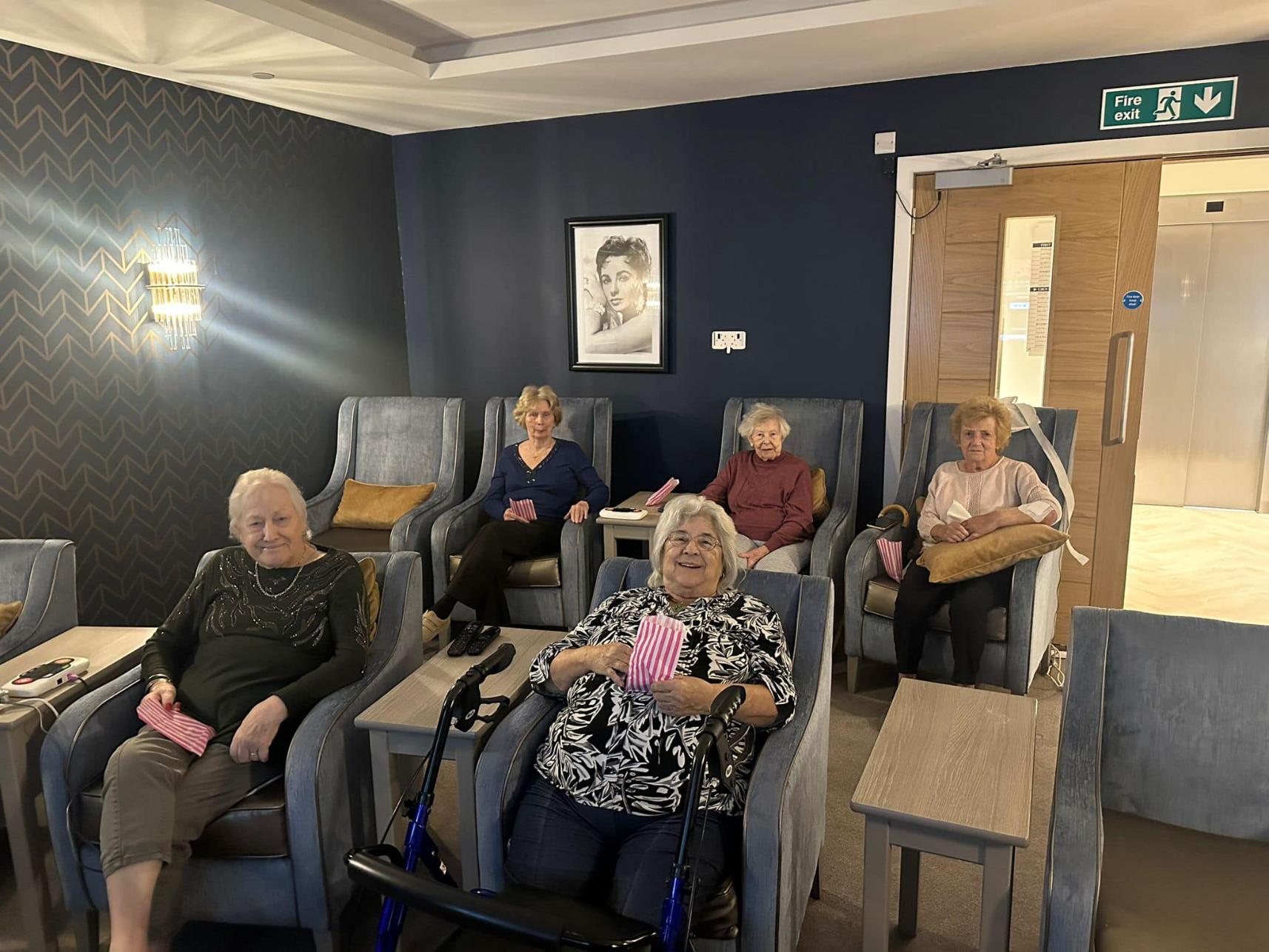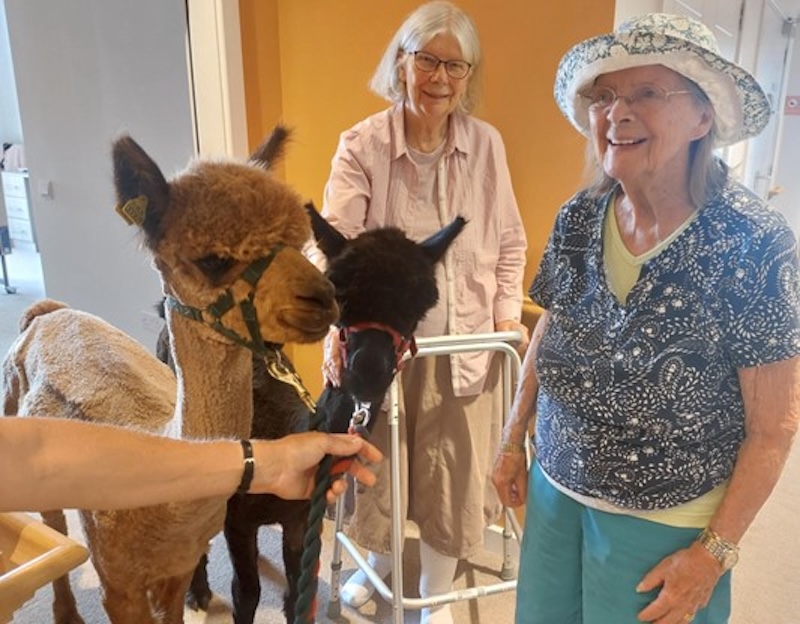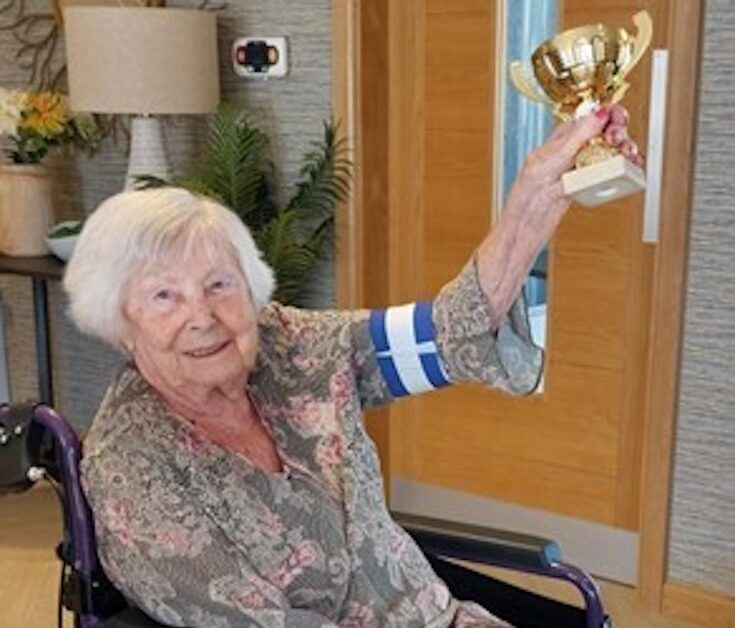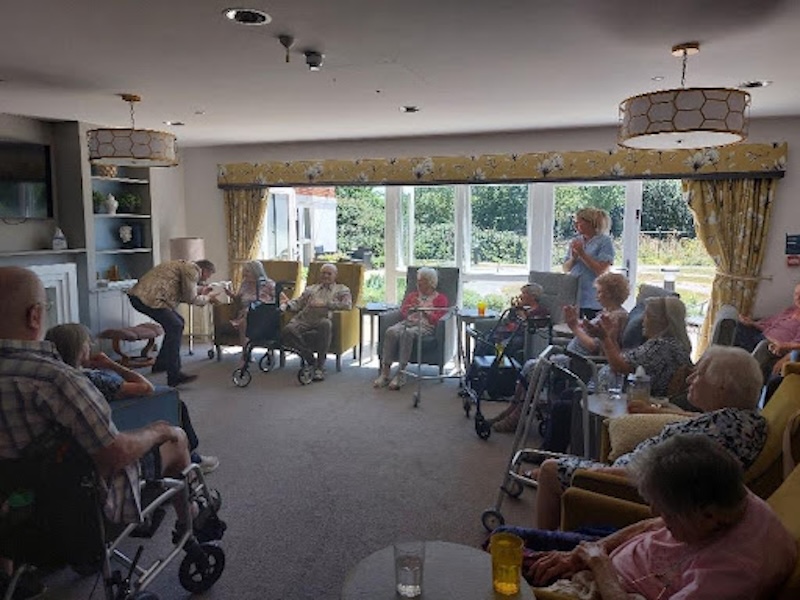Fun and Engaging Care Home Activity Ideas for Seniors
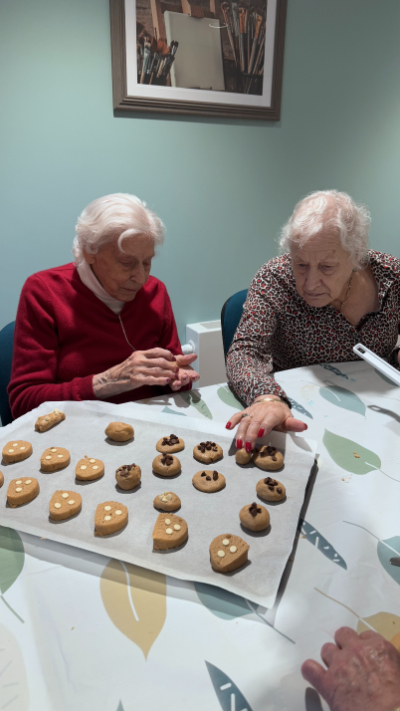
A well-planned activities programme is an essential part of life in any care home, helping to support both mental and physical health while creating opportunities for social interaction. Thoughtfully designed activity ideas can bring joy, encourage mental stimulation, enhance overall well-being, and help residents enjoy a sense of purpose.
At the heart of a successful care home lies a commitment to high-quality care, and person-centred activities play a key role in achieving this. By considering residents’ interests, life experiences, and abilities, it’s possible to create a diverse and inclusive programme that benefits everyone. Whether through creative activities, physically stimulating exercises, or opportunities to engage with the local community, fun activities can have a positive impact on their overall quality of life.
The Importance of Meaningful Activities in Care Homes
Engaging in meaningful activity is more than just a way to pass the time. It provides psychological benefits, supports coordination, and helps to maintain thinking skills, particularly for those living with dementia or cognitive impairments. Regular participation in group activities also strengthens existing relationships and creates opportunities to build new friendships with other residents.
A well-structured activity programme should be designed to support residents at all levels of ability. This includes those who are physically active and are receiving residential care as well as those who require gentle exercises or seated alternatives due to their nursing care needs. It’s important to tailor activities to individual needs and ensure everyone can take part in a way that suits them.
Social connection is a vital aspect of well-being, and participation in group activities can prevent isolation and loneliness. Whether it’s a shared hobby, a discussion group, or a delicious meal alongside like-minded individuals, these moments help to create a strong sense of belonging and strengthen or create friendships.
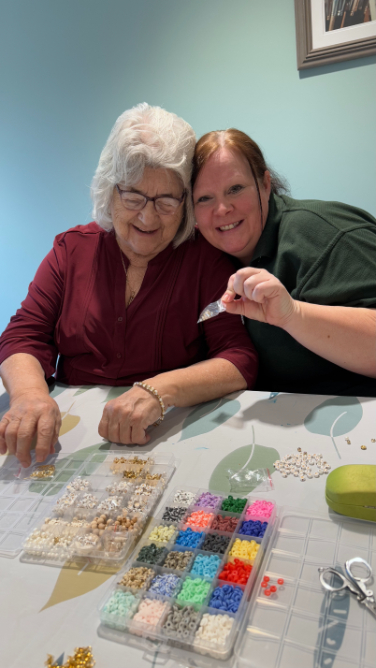
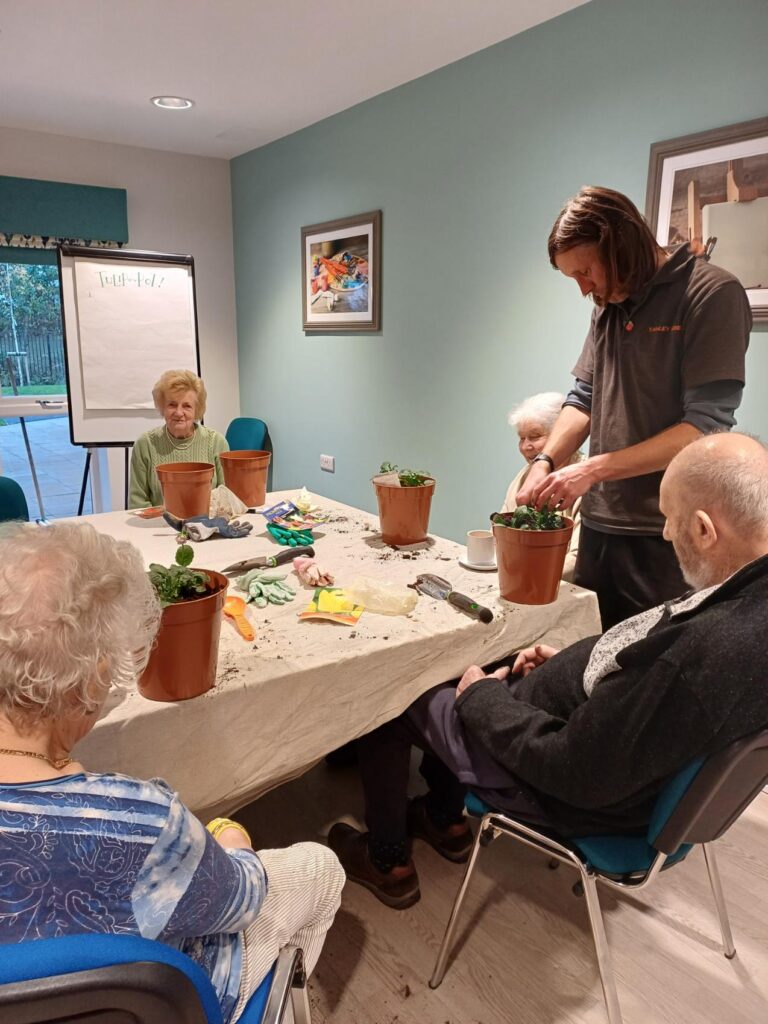
Encouraging Creativity and Self-Expression
Engaging in activities such as arts and crafts offers numerous benefits, from helping to reduce stress to improving self-esteem. Many residents find that expressing themselves creatively gives them a renewed sense of purpose and an opportunity to show off their identity with others with a physical end result. Art classes and flower arranging are particularly popular in care homes and a great activity to consider.
Creative outlets also provide an opportunity to reminisce and reflect on life stories. Singing and reminiscence therapy are fun ways to evoke memories and emotions, encouraging individuals to connect with their past positively. This can be especially valuable for those living with dementia or other cognitive impairments, offering comfort and a sense of familiarity.
For those who enjoy music and movement, dance classes provide a fantastic way to stay active while having fun. Not only do they promote physical activity, but they also contribute to mental well-being by boosting confidence and offering opportunities for social interaction by bonding over favourite songs from residents' youths. Dance classes can also be adapted to suit all levels of mobility, making it a fun and engaging activity idea.
Staying Active for Physical and Mental Well-Being
Staying active is essential for maintaining physical health and mobility and one way this can be completed is through regular exercise classes. These can include everything from gentle exercises such as yoga or tai chi, designed for flexibility and balance, to more energetic sessions such as walking and static cycling aimed at improving cardiovascular fitness. Exercise has been shown to improve brain health, improve cognitive function, and contribute to a greater overall well-being.
Outdoor activities can be particularly beneficial as they offer fresh air and a connection to nature. Walking groups, bird watching, and garden games encourage residents to enjoy the outdoors while reaping the health benefits of being active, such as reduced stress and improved mental health.
Encouraging individuals to stay physically active doesn’t always mean structured exercise sessions. Even daily tasks, such as gardening, light housework, or setting the table for meals, can contribute to improved mobility and mental well-being. Allowing residents to take part in these daily tasks supports independence and provides a sense of normality in their routine.
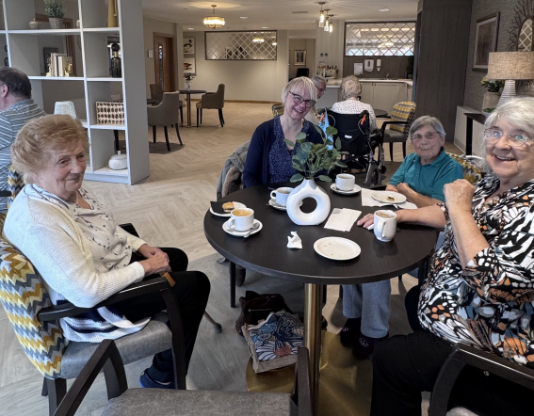
Connecting with the Local Community
A strong connection to the local community can provide a more profound sense of purpose for care home residents. Many homes arrange regular trips to local attractions, markets, or gardens, allowing residents to experience new surroundings and engage with different people.
Inviting visitors into the care home can be just as valuable. Schools, local performers, and hobby groups enjoy spending time with home residents, offering everything from storytelling sessions to live entertainment. These interactions can be especially meaningful for those who may have limited mobility or can't leave the home as often.
For those who wish to maintain existing relationships, family-friendly events provide a great way for residents to spend quality time with loved ones. Intergenerational activities, such as games or reading sessions involving grandchildren, can be incredibly uplifting and enriching for everyone involved.
Supporting residents in continuing their hobbies and interests can also strengthen their connection to the local community. Whether it’s joining a community bingo group, knitting for charity, or taking part in community gardening projects, these activities provide valuable engagement and a positive impact on overall happiness.
The Role of an Activities Coordinator
A dedicated activities coordinator plays a vital role in activity planning, ensuring that care home residents have access to a variety of enriching and exciting activities. By understanding residents' backgrounds, hobbies, and abilities, they can create a programme that reflects their interests and abilities. This might include:
- Board games, which encourage mental stimulation and friendly competition
- Reminiscence sessions, where residents can share their life stories and connect over shared experiences
- Music therapy, which has been shown to encourage mental stimulation and improve well being
With the right support, an activities coordinator can help to engage residents and provide them with fulfilling experiences that go beyond simple leisure activities.
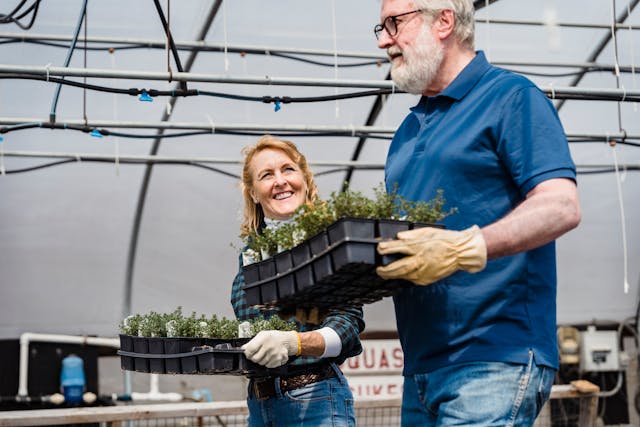
Promoting High-Quality Care Through Activity
A commitment to promoting high-quality care means recognising that every resident is an individual with unique needs. Encouraging individuals to take part in meaningful activity helps to maintain a sense of routine and offers a reassuring structure to the day.
Recognising the risks involved in certain activities is also important. Ensuring that all activity planning takes into account safety measures, mobility concerns, and personal preferences allows residents to participate with confidence.
Our Activities Programme at Yarnley House Care Home
At Yarnley House, we understand that well-being is about more than just physical care. Our dedicated team works to create an environment where residents can truly thrive, offering a wide range of tailored activities. With an emphasis on mental and physical health, social connection, and meaningful engagement, our care home in Ringwood provides a welcoming and stimulating environment for all.
If you would like to learn more about our approach to high-quality care or the personalised activities we provide here at Yarnley House, we’d love to welcome you for a visit. Whether you're considering residential care, nursing care, dementia care or respite care, our team is here to answer any questions and ensure the best possible experience for our current and prospective residents.
